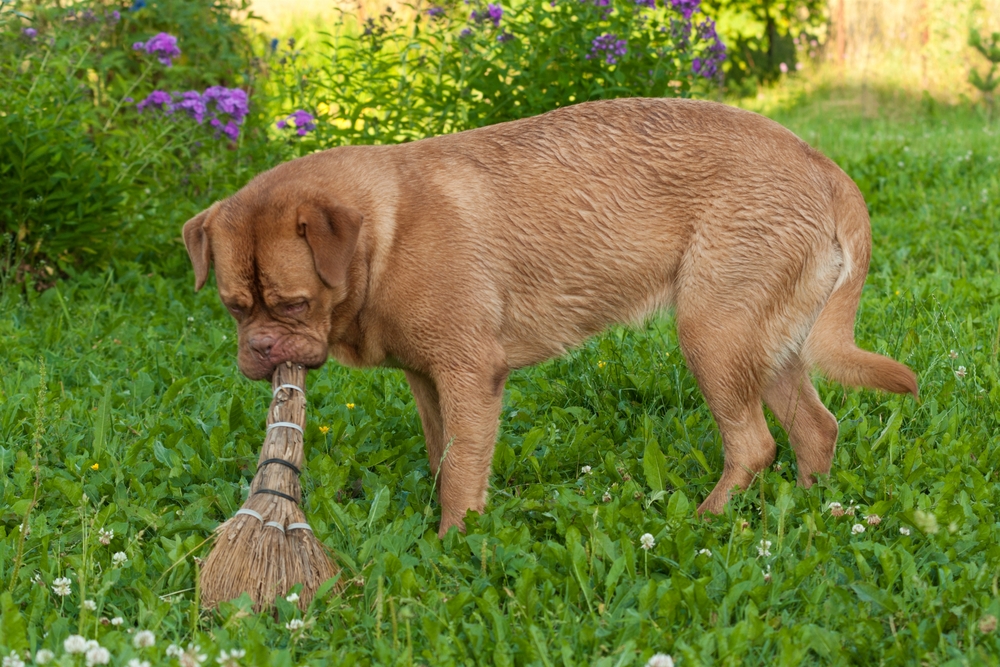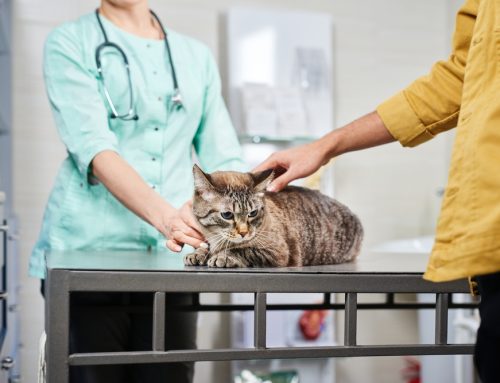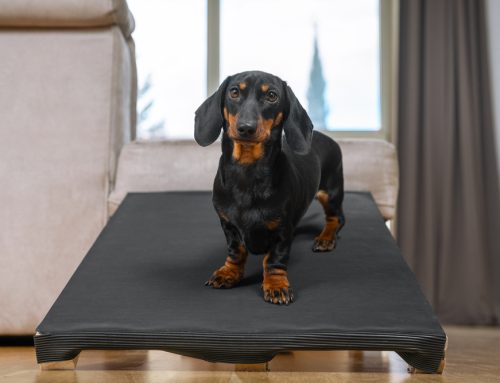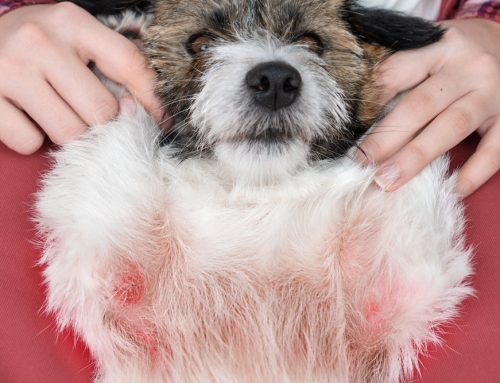Independence Day may be great fun for people, but it’s the worst day of the year for pets. PetAmberAlert, a lost pet notification service that helps lost dogs, cats, and birds find their way home, reports that more pets go missing July 4 to 6 than any other time of year, and shelters take in 30% to 60% more animals than usual on those days. That is sad enough but, worse, after entering a shelter, fewer than 2% of cats and 20% of dogs ever return to their families, according to the National Council on Pet Population Study and Policy.
Fireworks, the centerpiece of many holiday celebrations, pose three serious risks to pets—poisoning when ingested, burns from lit fireworks, and noise phobia or anxiety from the exploding fireworks. Scared dogs and cats often flee and become lost or are injured in traffic.
You still have time to plan ahead to minimize these risks and keep your pet safe and sound on Independence Day. Here are recommendations from our Twin Maples Veterinary Hospital team for before, during, and after the celebrations.
Before the festivities
- Up-to-date ID — This is always important, and never more so than the week around July Fourth. Ensure that all your pet’s means of identification carry your current contact information. If your dog or cat is microchipped, confirm that their data in the microchip registry is up-to-date. If your pet is not microchipped, before July Fourth is the perfect time, so call us and make an appointment. Check whether your pet’s ID tag is readable, or if you need to invest in a new tag. Take photos of your dog or cat that show their distinguishing features in case your pet wanders off during the celebration.
- Calm those nerves — If the holiday activities and noise of guests arriving and fireworks exploding make your pet anxious, call us ahead of time for suggestions. Medication is available, as well as calming coats, anxiety vests, and pheromone diffusers and sprays.
- A safe sanctuary — If you’ll be entertaining during the holiday, set aside a safe space for your dog or cat ahead of time. Choose a quiet room with their favorite bedding and toys and play soft, calming music. When your guests arrive, ask them to leave your pet alone when they are in their safe place.
- Staying at home — If you’re traveling for the holiday but plan not to take your pet, the best option is a boarding facility you know is safe, has a caring team who closely supervises and plays with their boarders and keeps a veterinarian on call. A live-in pet sitter is another good option if you know and trust the person, but that can be expensive. You can also ask a friend or a pet-sitter to look in on and feed your pet a couple of times a day, but this option is less than ideal.
While you’re celebrating Independence Day
- Avoid the heat — Although you’re well aware of the hazards of fireworks at night, don’t forget about the daytime summer heat and humidity that can be hazardous to your pet. Keep them indoors, or ensure they have plenty of shade and cool drinking water while outdoors. Also, remember that the shaded areas change, so check that your pet always has accessible shade. Watch carefully for heatstroke signs, which include excessive panting, drooling, or agitation.
- Limit the partying — Some cats and dogs love company and being the life of the party, but keep them away from sparklers, glow sticks, tiki torches, and candles that can be toxic, if ingested, or burn your pet. Don’t let them near your hot barbecue grill, don’t feed them people food—and ask guests also not to treat them with table scraps, which could upset their stomachs. Feeding ahead of time may reduce their begging.
- No drinking allowed — Alcoholic drinks, tobacco, and cannabis are poisonous to pets and should be totally inaccessible.
- Keep fireworks at a distance — Many pets who seem fearless in most situations freak out when the fireworks begin. So, take no chances, and leave your dog or cat at home in their safe place.
After the last fireworks pop

Before you let your pet back outside, check your yard and your neighbors’ yards for fireworks debris, which can be toxic if eaten. Also, look for food or skewers dropped from a grill, as well as litter, such as plastic bags or straws, that are hazardous to pets and could cause choking or a stomach obstruction. Indoors, ensure your leftover food is placed out of pets’ reach.
For more ways to keep your pet safe during holiday celebrations, contact our AAHA-accredited Twin Maples Veterinary Hospital. We want you and your pet to enjoy a fun, safe, July Fourth.









Leave A Comment